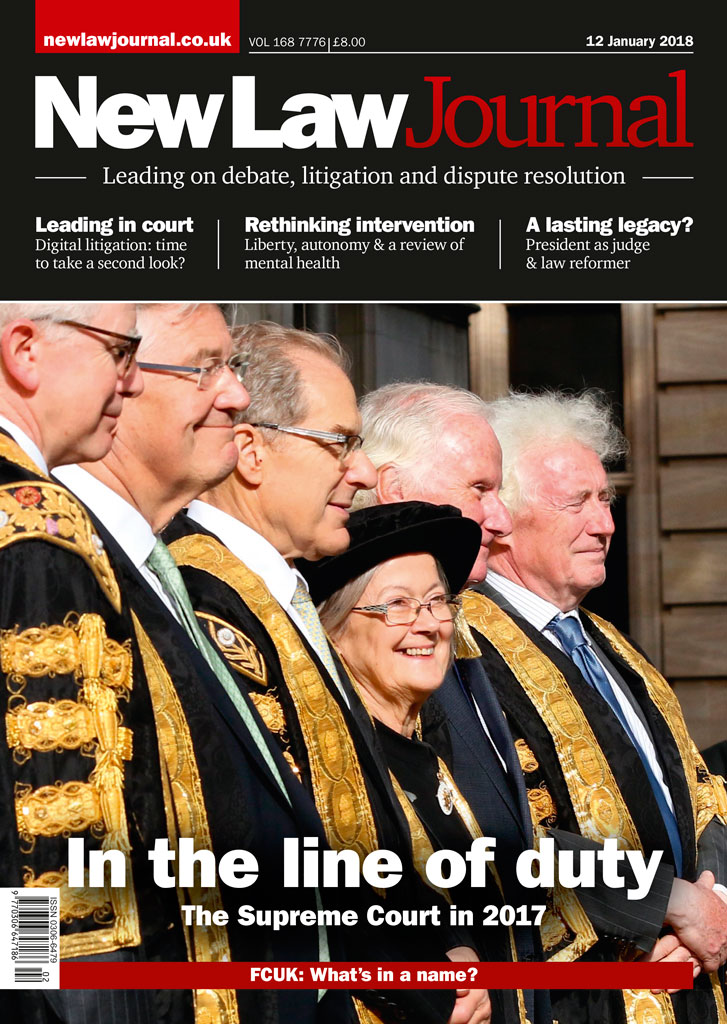
The Supreme Court heard a record 82 cases last year, beating the record set in 2013 by one.
Lady Hale delivered the most judgments (20), while Lord Hughes delivered the fewest (nine). Dissent was expressed in only 12 cases. Lords Kerr and Clarke dissented four times. Lords Carnwath and Hughes dissented three times. Only Lord Sumption did not dissent at all.
Writing in NLJ this week, Professor Brice Dickson, Queen’s University Belfast, notes that more than a quarter of the Court’s cases involved interveners. A total of 48 interveners contributed to 24 cases.
Two references were made to the European Court of Justice. The longest judgment, concerning British soldiers’ detention powers in Afghanistan and Iraq, ran to 360 paragraphs.
In a busy year, the Court handed down decisions on major constitutional matters such as the Article 50 process for Brexit, welcomed its first female President, Lady Hale and appointed three new Justices, Lords Lloyd-Jones and Briggs and its second female Justice, Lady Black.
This year, a further three retirements are due—Lords Mance, Hughes and Sumption—again changing the composition of the court.









